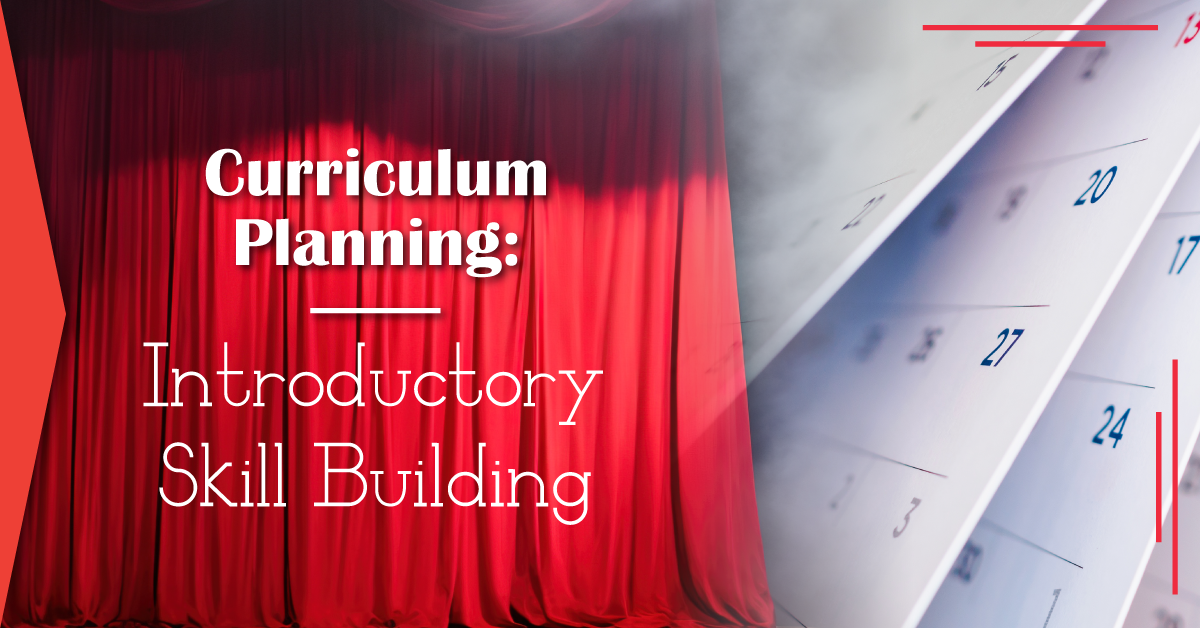What Skills Do You Need to Work on a Show?
When students are looking to get involved in theatre, do they have the needed skills?
We aren’t just talking about “hard skills.” Hard skills are the specific abilities or knowledge needed to do a specific job. For example, if a student wanted to learn how to run lights, they would probably come in without much (if any) prior knowledge of how a lighting board works. A beginning actor may not know the difference between “downstage” and “upstage.” A new stagehand might not know the proper clothing to wear when moving set pieces (head-to-toe black, please!)
However, hard skills can be taught and practiced fairly easily.
In this post, we are talking about “soft skills.” Soft skills are personal attributes and personality traits that help you work with people. In the theatre environment soft skills allow you to be helpful in achieving group goals. Unlike hard skills, soft skills are subjective – they are not always easy to define and can be more challenging for students to develop and practice because every student is different. Working with your students to help them develop these skills will benefit your students in the drama classroom and while they are working on a show, which is great. BUT these are transferable skills that can be used in any aspect of students’ lives.
Here are five skills that are essential for your students to possess (or work on developing!) to work on a show – either onstage or backstage.
1. Trustworthy
Teachers need students they can depend on when working on a show. Teachers need to be able to trust that student actors will practice and review their lines and blocking at home. They need to trust that the technical operators will take proper care of the equipment and use each piece safely and correctly. They need to trust that any student who volunteers for a production will show up at their call time, ready to work. Drama students who are trustworthy are a huge asset to their teachers and directors!
2. Works Well Independently
Drama teachers don’t have time to have to check and recheck that their students have completed their pre-show checklists. They need to be able to leave the room and know that, for example, the students in charge of scenic painting can complete their work without supervision, or that they won’t have to stand behind the sound technicians to ensure they hit the correct button at the right time. At the same time, students also need to be a…
3. Team Player
Even if you’re doing a one-person show (which is highly unlikely in a school setting!), there is a still a team of people working towards the final performance. Everyone, from the director to the actors to the stage management team to the designers to the operators (and everyone in between), is working towards a common goal – to create a fantastic production. In order to create a safe space for everyone, drama students must support each other, cheer each other on, help each other out, and leave any personality conflicts outside of the auditorium. Working as a team to create a positive environment is key. Nobody wants to work with a diva!
4. Calm Under Pressure
Things will go wrong during a performance – it’s not a case of “if,” it’s “when.” And when issues occur, will your students fall apart and panic or will they figure out a solution? Hopefully it’s the second! Staying calm under pressure is not a skill that comes easily to many people (adults included!) but keeping a “show must go on” mentality can help. Your students can practice staying calm in stressful situations by playing The “What If” Game.
5. Proactive
It is fantastic when a student completes their assigned task, comes to the teacher, and asks for another task to complete. It’s even better when that student completes their task, sees another task that needs to be done or a problem that needs to be solved, and completes that as well – without being asked. Being proactive is one of the most challenging skills for students to develop, because students may be afraid of overstepping their boundaries or making a mistake. Encourage and empower your drama students to look around, identify tasks that they can help with, and take initiative to lend a hand. Then watch their confidence grow in leaps and bounds!
Looking for a play your performers will love? Search our play catalogue here!



